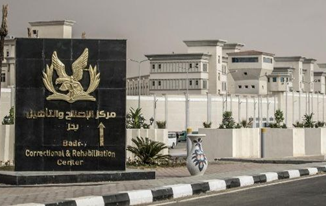
BY: Iyad Walid*
Since Gen. Abdel Fattah al-Sisi jumped to power in Egypt after overthrowing his president Dr. Mohamed Morsi in a military coup on July 3, 2013, he has continued to prove one day after another that his allegiance to Tel Aviv and its leaders overcomes his loyalty to Egypt and its people.
According to the Israeli newspaper ‘Maariv’, on January 31, 2106, Yossi Melman, an Israeli security expert, described the Israel’s relations with Egypt during the reign of al-Sisi as a “strategic treasure”. Also, Kobe Michal, the well-known Israeli writer and Maariv’s Arab affairs analyst, said that the coup leader, Abdel Fattah al-Sisi, offers heroic services to Israel that were not provided by any other Arab ruler, stressing that “Sisi defies the entire Egyptian people in order to maintain the security of Israel.”
Al-Sisi has offered so much to Israel and its leaders, particularly the imposition of a full closure of Egypt’s border with the Gaza Strip – by closing Rafah crossing, the flooding of the tunnels that were used to pass goods and basic needs to the people of Gaza after Israel tightened its blockade on the Gaza Strip and its people, and then Al-Sisi’s obvious pursuit to thwart any international or regional efforts for breaking the siege and alleviating the suffering of the Gazans.
During the 2014 war on the Gaza Strip, which was called by Israel: “Operation Protective Edge” and by Hamas: “Operation Eaten Straw”, Al-Sisi did not hide his full bias towards the Israeli side, which was monitored by some news agencies and a lot of political analysts. The Washington Institute for Near East Policy said in a study by Eric Trager titled “Sisi’s Egypt and the Gaza Conflict”, on July 14, 2014, that Sisi is “less able and less willing to fulfill Egypt’s traditional role of mediating between Hamas and Israel.” because he is biased towards Israel!!
This was also confirmed by Tzipi Mizal, the former Israeli ambassador to Egypt, who is now fellow of Jerusalem Center for Public Affairs, when he said: “Egypt is not in a hurry to see an end to the outstanding conflict, and I do not think that the Egyptians (the regime) may shed tears when Israel attacks Hamas. Even the Egyptian condemnation of the attacks of the Israeli army came timidly with a complete absence of any comments from Al-Sisi in the Egyptian media.”
Added to all this, the Al-Sisi regime committed a “political sin” which was the first of its kind over the Egyptian diplomatic history, and since the establishment of the State of the Israeli occupation in 1948, when Egypt voted in favor of Israel during the elections for membership in the United Nations Committee on the Peaceful Uses of Outer Space Affairs (UNOOSA) !!
I wonder how Egypt ceded the two Tiran and Sanafir islands that are Egyptian according to history, geography and blood?! Who is responsible? And who is the first promoter of the campaign for selling the two islands?! Is Saudi Arabia the real beneficiary of that step or is it Israel that one of its leaders – the current Minister of Housing, Yoav Gallant – said that such a move was the biggest favor that Sisi offered to Israel?!
Israel is haunted by a state of anxiety because of the threats that surround the Egyptian regime, which may lead to its inability to remain to the next year. In fact, Israel’s loss of Egypt’s Al-Sisi who has got close relationship and unprecedented security alliance with the occupation state – in case of his downfall or being overthrown – would be tragic and resounding to Israel.
In an important study prepared by some Israeli research centers, most notably the Israeli Military Intelligence (Aman) affirmed that Israel proceeds from an assumption that continuing to secure political support and the flow of economic aid to the Egyptian regime is very important, on the grounds that they may contribute to reducing the chances of its collapse. Smadar Perry, the Middle East editor of the Israeli newspaper Yediot Ahronot, confirmed that there are concerns prevailing the decision-making circles in Tel Aviv on the fate of al-Sisi regime, and that Tel Aviv is aware that the al-Sisi regime is going through security, economic, political and diplomatic crises. She continued saying that al-Sisi’s problems are increasing, and his security forces are no longer able to deal with the internal conflicts, and that the corruption caused the erosion of the Egyptians’ confidence in the al-Sisi regime.”
Will Egypt – not Israel – suffer from water shortage?!
Israel has hurried to help the Egyptian regime for preserving its stability, and the Israeli media talked clearly about the mechanisms of assisting the Egyptian regime economically. According to Yediot Aharonot, several investment projects will be carried out by Israel upon an Egyptian request after years of the absence of economic cooperation between the two countries. The most prominent of these projects are related to water in light of concerns regarding a decline in the Nile water level, This came after the emergence of a real crisis that was cited by Egyptian pro-coup newspapers, most notably the Youm7 newspaper, which published photos last summer illustrating how much Egypt was affected by the water crisis caused by the Ethiopian ‘Renaissance Dam’.
In a report including exclusive photos from the fieldwork sites of tunnels that are being built under the Suez Canal, the British Middle East Observer (MEO) website said that the establishment of undeclared six tunnels in Sinai is aimed at the delivery of Nile water to Israel. MEO also said that the work in these tunnels was assigned to some of the army-owned companies as well as Orascom, which is owned by the family of the businessman ‘Naguib Sawiris’, who is close to the government.
Anyway, Al-Sisi has not left any space for a “good will” or an attempt to “whiten” his political face after all what he offered of services, concessions, and rewards to the occupation state , which it never dreamed of in the era of any former president of Egypt, including Israel’s old “Strategic Treasure” Hosni Mubarak.
*Iyad Walid is an Egyptian political researcher in the international relations.



